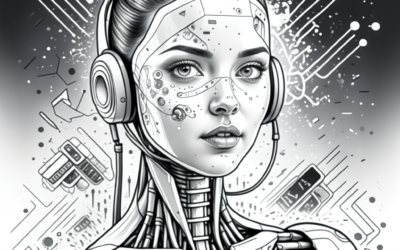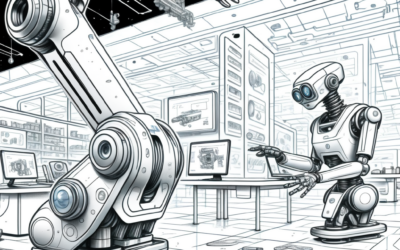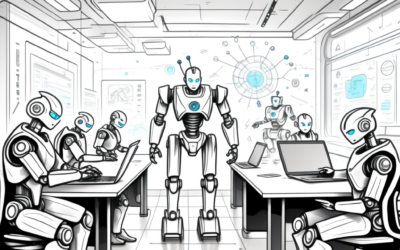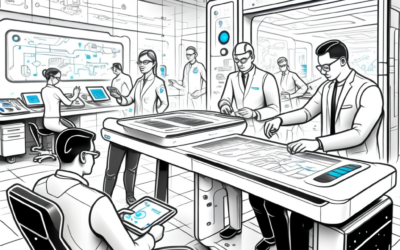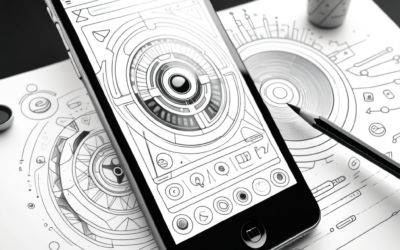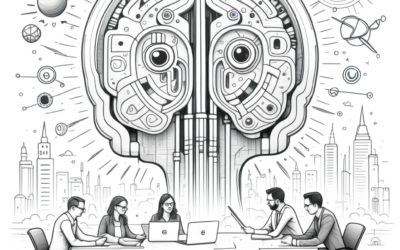AI and technology are transforming our world, read about it here
Unlock the Secrets of AR and VR: Discover the Power of Programming Languages
Unlock the Secrets of AR and VR: Discover the Power of Programming Languages
The world of Augmented Reality (AR) and Virtual Reality (VR) is rapidly evolving, driven by the demand for immersive experiences. As the industry continues to grow, the need for skilled programmers who can bring these digital worlds to life has never been more critical. This article delves into the essential programming languages for AR and VR development, highlighting their strengths and weaknesses, and emerging trends that are shaping the future of this dynamic field. From C# with Unity to JavaScript for web-based AR and VR, and from Swift for iOS to Kotlin for Android, we explore the programming powerhouses that are revolutionizing the AR and VR landscape. Whether you’re a beginner or an advanced user, this article provides a comprehensive guide to help you navigate the exciting world of AR and VR programming languages and start crafting your own immersive experiences.
Revolutionizing Quality Assurance: The AI Advantage
The integration of artificial intelligence (AI) in quality assurance is revolutionizing the tech industry by enhancing speed, accuracy, and efficiency in software testing. AI tools can analyze vast amounts of data, identify patterns, and anticipate potential issues, allowing testers to focus on the most critical areas. With AI-powered testing, companies can experience significant cost savings, improved customer satisfaction, and continuous improvement in product quality. Notable tools such as Testim.io, Applitools, and Functionize are leveraging machine learning and natural language processing to create and maintain tests that adapt to changing software interfaces. As AI continues to evolve, it promises to enable self-healing systems, machine learning, and deep learning capabilities, further transforming the quality assurance landscape. By embracing AI, young tech enthusiasts and professionals can shape the future of quality assurance and contribute to the development of better software and more efficient processes.
Revolutionize Quality Control: How AI Can Supercharge Your Processes
Revolutionizing Quality Control: How AI Can Supercharge Your Processes
Traditional quality control methods are being outpaced by the demands of a fast-paced world, where consumers expect perfection. Artificial intelligence (AI) is stepping in to revolutionize quality control processes, bringing a new level of precision and speed. AI technologies, such as computer vision, machine learning, and anomaly detection, can detect defects, improve accuracy, and catch potential problems before they become major issues. From the automotive industry to healthcare, AI is enhancing quality control across various sectors, including food processing, medical imaging, and more. By implementing AI in quality control, companies can reduce defects, improve efficiency, and enhance overall performance. This article explores the limitations of traditional quality control methods, the power of AI in quality control, and provides a step-by-step guide on how to effectively integrate AI into quality control systems. With real-world applications and success stories, this article highlights the potential of AI in transforming quality control processes and sets the stage for a future where AI and human oversight work in harmony to achieve excellence.
The Future of Testing: Unlocking Efficiency, Accuracy, and Innovation with AI
The future of software testing is here, and it’s being revolutionized by AI. By leveraging machine learning, developers can turbocharge their testing with unprecedented efficiency, accuracy, and reliability. AI-driven software testing can automate repetitive tasks, reduce human error, and provide instant feedback, resulting in a 50% reduction in testing time and a 26% cost reduction. Additionally, AI can identify bugs early, preventing costly software failures and allowing developers to focus on more complex challenges. With AI, teams can receive instant feedback, spot bugs and anomalies, and foster creativity, leading to better-performing software and a competitive edge in the tech world. By embracing AI-powered software testing, developers can unlock a more efficient, accurate, and innovative development process, paving the way for groundbreaking projects and a brighter future in the tech industry.
Revolutionize QA Testing: How AI is Transforming the Game
Quality assurance testing is undergoing a significant transformation with the integration of artificial intelligence (AI). AI is revolutionizing the QA testing landscape by making it faster, smarter, and more efficient. By automating testing processes, AI can generate thousands of test scenarios in minutes, reducing testing time and improving bug detection rates. Additionally, AI’s predictive analytics capabilities enable it to analyze patterns in code and user behavior, predicting potential issues and targeting bug detection. The benefits of AI in software testing include boosted accuracy, speed, and cost-effectiveness, as well as minimized human error and empowered human testers. Real-world examples showcase AI’s transformative impact on QA testing, with companies like Google, Amazon, and Microsoft achieving significant savings and improvements in software quality. As the tech world continues to evolve, embracing AI in QA testing is essential for navigating the future of software quality.
Unlocking Smart App Potential: Leveraging AI for Enhanced Functionality
Unlocking the full potential of smart applications requires harnessing the power of Artificial Intelligence (AI). This guide explores how to create intelligent applications that learn, adapt, and respond to user needs, simplifying their lives and enhancing interactions. By understanding the different types of AI and leveraging its capabilities, developers can build apps that stand out and provide genuine value to users. From personalization and predictive analytics to machine learning and natural language processing, this article delves into the building blocks of smart application development, providing a step-by-step guide to creating innovative and user-centric apps. With AI, the future of smart applications is brimming with innovation and opportunity, and this guide offers a comprehensive resource for young developers, tech enthusiasts, and anyone looking to tap into the potential of AI in app development.
Revolutionizing Tech: The Ethics of AI in Software Development
The development of Artificial Intelligence (AI) has reached a critical juncture, where its potential to revolutionize software development is matched only by the need for responsible and ethical considerations. As AI becomes increasingly integrated into various aspects of life, its impact on society raises fundamental questions about fairness, transparency, and accountability. This article delves into the crucial topic of AI ethics in software development, highlighting the importance of fairness, transparency, and accountability in AI systems. It explores the challenges and opportunities presented by AI, and provides practical guidelines for developers to ensure that their AI projects are not only innovative but also responsible and beneficial to society. By integrating ethics into AI development, developers can create technologies that not only drive progress but also promote fairness, transparency, and accountability, ultimately shaping a more just and equitable society.
Revolutionizing Daily Life: The Power of AI-Driven Personal Assistants
AI-driven personal assistants are revolutionizing daily life by simplifying tasks, boosting efficiency, and enhancing learning experiences. These intelligent companions, such as Siri, Alexa, and Google Assistant, use artificial intelligence to understand voice commands, automate tasks, and provide personalized support. From managing schedules and to-do lists to offering homework help and interactive learning tools, AI assistants are transforming education and making it more accessible and engaging for students. With their ability to learn and adapt, these digital helpers are poised to become an integral part of our daily routines, offering a glimpse into a future where technology seamlessly integrates with our lives.
Revolutionizing Play: Unleashing the Power of AI in Gaming
Artificial Intelligence (AI) is revolutionizing the gaming industry, transforming how we create and enjoy games. AI is being used to develop more immersive and personalized experiences, with features such as procedural content generation, dynamic difficulty adjustment, and advanced development tools. This technology allows for the creation of unique game worlds, characters, and storylines that adapt to the player’s preferences and behavior. The future of gaming promises to be spectacular, with AI-driven advancements in game development, player experience, and storytelling. From emotionally aware narratives to evolving game worlds, the possibilities are limitless, and the next decade promises incredible breakthroughs in gaming.


